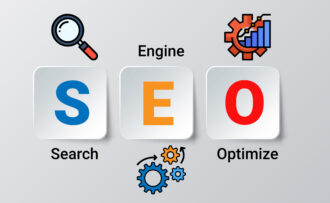Technical SEO: A Deep Dive into Site Speed, Structured Data, and More
In the vast world of search engine optimization (SEO), a specialized area often doesn’t get the limelight it deserves: technical SEO. While on-page and off-page SEO tactics, such as content creation and backlink acquisition, are frequently discussed, the technical aspects that underpin a website’s performance are equally crucial. This article delves deep into the intricacies of technical SEO, focusing on site speed, structured data, and other pivotal elements that can make or break a website’s search engine ranking.
A Deep Dive Into The Technical SEO

The Importance of Site Speed
Site speed is more than just a user experience factor; it’s a ranking signal for search engines. A fast-loading website ensures that visitors stay engaged and indicates to search engines that the site is well-optimized and provides a good user experience. Google, for instance, has made it clear that site speed is a part of their ranking algorithm. Slow-loading pages can lead to increased bounce rates, negatively impacting SEO. Therefore, optimizing images, leveraging browser caching, and minimizing server response times are essential steps in improving site speed.
Structured Data: Making Sense of Your Content
Structured data is a way of formatting HTML that uses a specific vocabulary, informing search engines about the content of a page. By implementing structured data, webmasters can help search engines understand the context of their content, leading to richer search results and potentially better rankings. For instance, a recipe page with structured data can display ratings, preparation time, and other relevant details directly in the search results. This enhances the user experience and increases the likelihood of clicks.
The Role of XML Sitemaps
An XML sitemap acts as a roadmap for search engines, guiding them through all the essential pages on a website. Especially for larger websites or those with a significant number of pages, an XML sitemap is crucial. It ensures that search engines can discover and index content that might remain hidden. Regularly updating the sitemap and submitting it to search engines can expedite the indexing process and ensure that all valuable content gets the attention it deserves.
Mobile Optimization
With most web traffic originating from mobile devices, ensuring a website is mobile-friendly is no longer optional. Mobile optimization ensures that users on smartphones and tablets have an experience tailored to their devices. This includes responsive design, fast loading times, and easy navigation. Google’s mobile-first indexing approach further underscores the importance of mobile optimization. Websites that aren’t optimized for mobile risk losing significant traffic and rankings.
Secure and Accessible Websites
Security is a top priority for both users and search engines. An SSL certificate, which results in the “https” in a web address, is a sign that a website is secure. Not only does this encryption protect user data, but it also serves as a ranking signal for search engines. Additionally, ensuring that a website is accessible to all, including those with disabilities, can improve user experience and boost SEO. Tools like the Web Content Accessibility Guidelines (WCAG) can guide web admins in making their sites more inclusive.
Outsource Link Building and Other Tactics
While technical SEO is paramount, it’s essential not to neglect other strategies. Some businesses rely on outsourcing link building to ensure a steady stream of high-quality backlinks, which remains a significant ranking factor. However, it’s crucial to approach this cautiously, ensuring that any outsourced efforts align with white-hat SEO practices. Balancing technical SEO with on-page and off-page strategies creates a holistic approach that can drive significant results.
Recap
Technical SEO, though sometimes overshadowed by its on-page and off-page counterparts, is the backbone of a website’s search engine performance. By focusing on elements like site speed, structured data, and mobile optimization, businesses can ensure that their website is user-friendly and search engine-friendly. As the digital landscape evolves, staying updated with the latest technical SEO practices will be paramount for online success. Whether you’re just starting or looking to refine your approach, prioritizing technical SEO can improve your website’s performance and ranking.

















